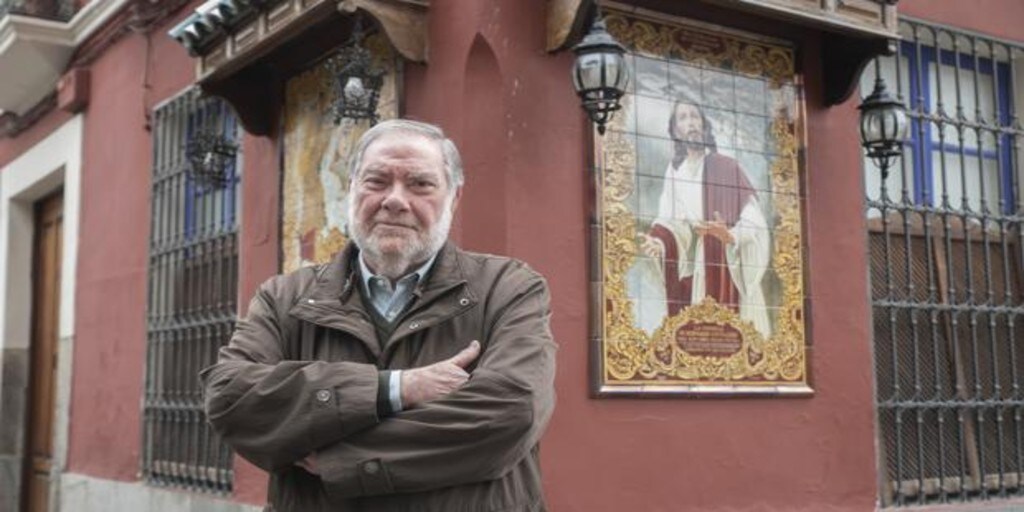Nuestra Señora de Covadonga. Manuel Muñoz Monasterio. 1953. Iglesia, Arquitectura

Arniches y Domínguez, la arquitectura, el exilio y la vida Escaparate ignorado
The hotel was built by the architects Manuel Muñoz Monasterio and Juan Jáuregui Briales in 1959-1960, who incorporated in its design the revisionist tendencies of the modern movement in those years, with the introduction of sets of colors, textures, wavy lines, etc.. The two grand staircases in the lobby set the appearance of the main.

Manuel Muñoz Cátedra contra el estigma
On 5 September 1944, architects Manuel Muñoz Monasterio and Luis Alemany Soler were hired and the structure on the site began to give way to the new stadium. On 27 October 1944, construction work on the stadium began, which was being built partly on the old site and on the grounds of Villa Ulpiana.

Ramón Sánchez Pizjuán Stadium (Sevilla, Spain) By Manuel Muñoz Monasterio Estádios, Futebol
Rather than building a new stadium from the ground up, Real Madrid has opted to instead rehabilitate its 73-year-old home field, originally designed by architects Manuel Muñoz Monasterio and Luis.

Manuel Muñoz Moreno recibirá una mención especial a la cultura en Argamasilla de Calatrava
Manuel Muñoz Monasterio fue un arquitecto español. Entre sus obras figuran: Plaza de toros de Las Ventas , Parque Deportivo Puerta de Hierro, Estadio Santiago Bernabéu , Estadio Ramón de Carranza , Estadio Ramón Sánchez-Pizjuán y Hotel Pez Espada de Torremolinos .

Nuestra Señora de Covadonga. Manuel Muñoz Monasterio. 1953. Iglesia, Arquitectura
One of the world's best-known stadiums, the Santiago Bernabéu was originally built in 1947 and designed by architects Manuel Muñoz Monasterio and Luis Alemany Soler. It is currently the.

Inscripción Arquitecto Manuel Muñoz Monasterio (Madrid) Flickr
Deux architectes espagnols sont chargés de dessiner le futur stade du Real : Luis Alemany Soler et Manuel Muñoz Monasterio, celui qui, dans les années 30, s'était chargé de la décoration à base de mosaïques, des arènes de Las Ventas, l'un des bâtiments les plus emblématiques de la capitale espagnole…

Santiago Bernabéu le stade royal de Madrid en perpétuelle mutation
The architects of the stadium were Manuel Muñoz Monasterio and Luis Alemany Soler, who was hired just 1 month before the construction of the stadium actually started on September 5, 1944. Just over 3 years later, the stadium was completed.

Monasterio fortaleza de San Juan Teologo Patmos (Grecia) Manuel Muñoz Flickr
On 5 September 1944, architects Manuel Muñoz Monasterio and Luis Alemany Soler were hired and the structure on the site began to give way to the new stadium. On 27 October 1944, construction work on the stadium began. The Nuevo Estadio Chamartín (English: New Chamartín Stadium).

SOL Y MOSCAS LA PLAYA DE MADRID
The design team of the project for the New Chamartín Stadium (later the Santiago Bernabéu Stadium) was in the hands of the architects Manuel Muñoz Monasterio (who also built the Ramón de Carranza and Ramón Sánchez Pizjuán stadiums), José María Castell and Luis Alemany Soler. Huarte was the construction company that was awarded the project.

Patmos Monasterio fortaleza de S. Juan Teologo Grecia Manuel Muñoz Flickr
Manuel Muñoz Monasterio - Wikidata Manuel Muñoz Monasterio (Q23715179) Spanish architect Manuel Munoz Monasterio edit Statements instance of human 0 references sex or gender male 1 reference country of citizenship Spain 0 references given name Manuel 0 references date of birth 14 May 1903 Gregorian 0 references place of birth Madrid 0 references

Manuel Muñoz, refundador de la hermandad del Huerto que trabajó por la Semana Santa de Córdoba
But Espeliús died before he could see his project realized, and it was completed in 1931 by Manuel Muñóz Monasterio, who later designed the Santiago Bernabéu football stadium.

Hotel pez Espada. Obra de los arquitectos Manuel Muñoz Monasterio y Juan Jáuregui
Manuel Muñoz Monasterio (1903-1969) Artículos 18/10/2021 Se alquila playa en Madrid por 4,6 millones de euros. Ana García Quesada Hubo una época en la que Madrid sí tuvo playa, con su arena, su orilla, sus tumbonas, sus sombrillas, sus barcas y, por supuesto, sus bañistas. Levantada en 1932 —durante la Segunda República—, fue la.

José María Castell, Manuel Muñoz Monasterio, Luis Alemany Soler _ Estadio Santiago Bernabeu
Information. Based on a project by José Espelius, who died during its construction, it was completed by Manuel Muñoz Monasterio in 1931 and opened in the same year. Las Ventas holds 23,798 fans and, at 196 feet in diameter, the arena is one of the largest in the world. The bullring has a capacity for 23,798 spectators and a ring with a.

abenojar
El proyecto elegido para el nuevo hogar del madridismo fue el de los arquitectos Manuel Muñoz Monasterio y Luis Alemany, el tiempo de construcción treinta meses, el presupuesto 68 millones de.

Monasterio fortaleza de San Juan Teologo Patmos (Grecia) Manuel Muñoz Flickr
Manuel Muñoz Monasterio ( Madrid, 14 de mayo de 1903 - Madrid, 1 de abril de 1969 1 ) fue un arquitecto español.

Manuel Muñoz Films, Bio en Lijsten op MUBI
The Ramón Sánchez Pizjuán Stadium ( Spanish: Estadio Ramón Sánchez-Pizjuán; [esˈtaðjo raˈmon ˈsantʃeθ piθˈxwan]) is a football stadium in Seville, Spain. It is the home stadium of Sevilla Fútbol Club, and is named after the club's former president, Ramón Sánchez-Pizjuán (1900-1956). [2]